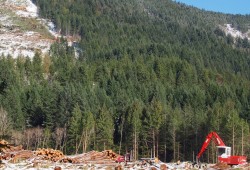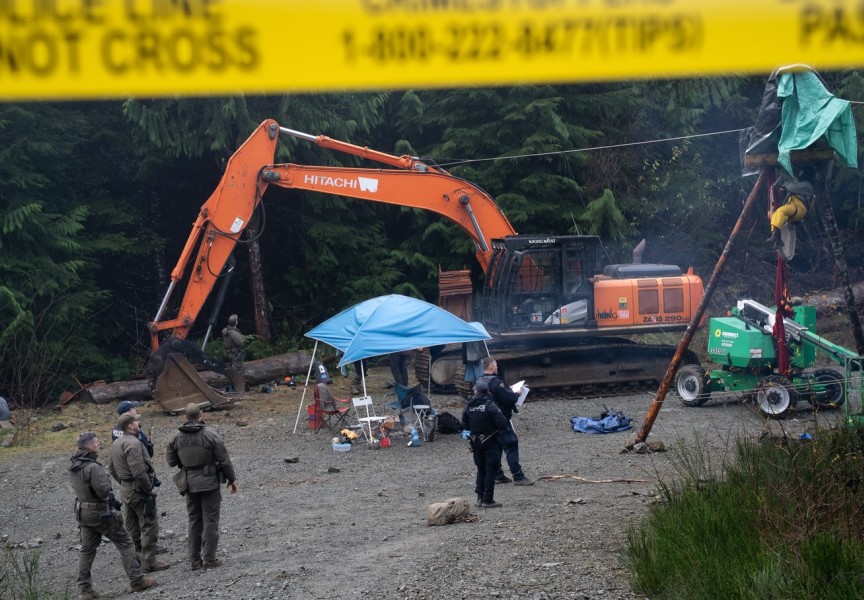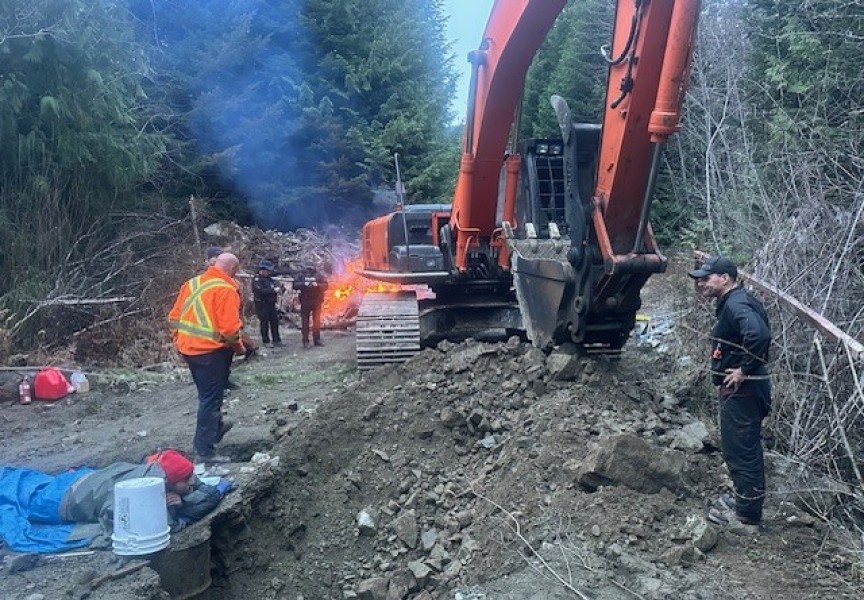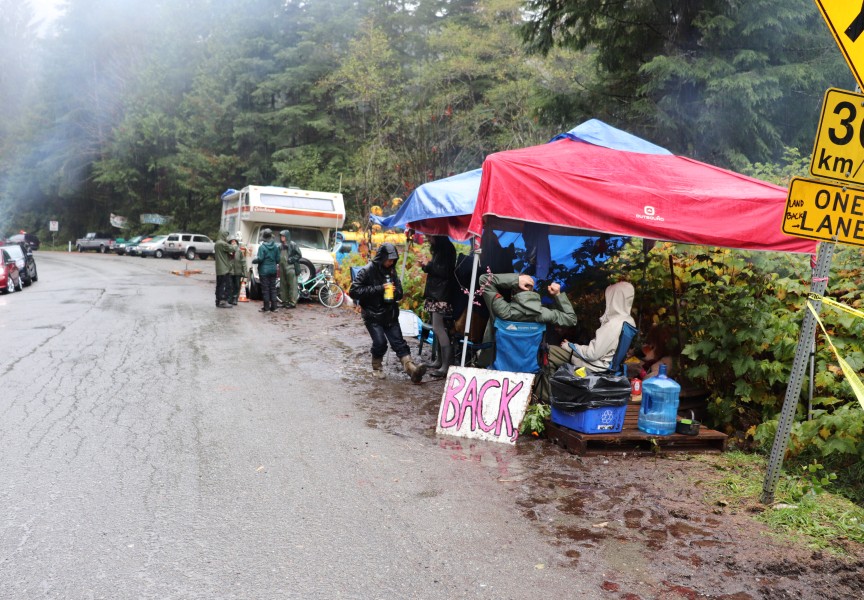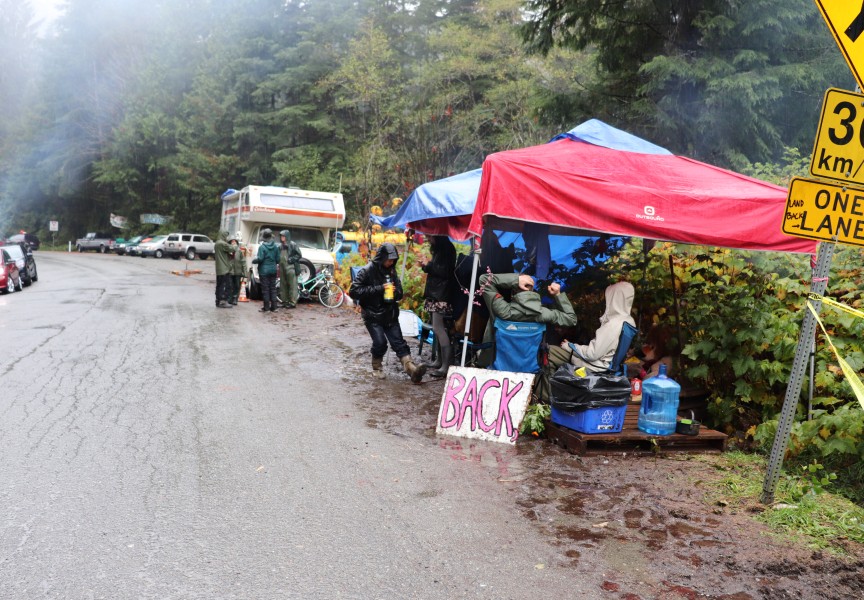The public has until mid-March to weigh in on a B.C. government watershed security strategy in the face of more severe environmental impacts, and a public interest watchdog wasted no time jumping in last week.
Environment and Climate Change Strategy Minister George Heyman released a discussion paper outlining the watershed security strategy Jan. 25 with emphasis on Indigenous engagement and reconciliation.
“Climate change and cumulative human impacts are threatening the health of the watersheds we depend on for clean drinking water, growing our food, habitat for aquatic species and healthy local economies,” Heyman said. “We need to ensure healthy watersheds for strong communities and ecological health, so we are collaborating with Indigenous peoples and all British Columbians to build a legacy of healthy rivers, lakes, streams and aquifers for our children and grandchildren.”
The Environment and Climate Change discussion paper (shorturl.at/bvCGK) outlines key strategic themes for safeguarding B.C. watersheds with a view to building on work already done to protect and restore local watersheds.
Increasing the role of Indigenous peoples, local governments and communities in watershed governance could help mitigate climate change risks, Heyman explains in the paper.
A day after the paper’s release, the B.C. Forest Practices Board (BCFPB) gave input based on 28 audit and investigation reports from the last 15 years.
While the ministry makes only passing reference in the paper to forestry impacts on watersheds — including them with mining, urban development and other activities that remove vegetation — the forest practices board response is much more specific.
“At least a third of the public complaints we have received involved the potential for forestry and range practices to affect water and downstream values including drinking water; the integrity of aquatic ecosystems and habitat; public infrastructure; and private property,” the board said.
The FPB zeroed in on four major faults in the way B.C. manages forests in relation to watersheds:
1. The public does not have adequate opportunity for meaningful involvement in how forest practices occur in relation to water and risk to values.
2. There are no legal requirements to assess or consider cumulative effects of forest practices in most watersheds in B.C.
3. Current forest practices contribute sediment into streams.
4. Historical forest practices continue to negatively affect water.
“Forest practices can affect water quality, quantity and timing of water flows, which may have negative impacts to drinking water, fish habitat, infrastructure, such as roads and bridges, and private property,” said Kevin Kriese, board chair. “Looking ahead, climate change will have significant effects on our watersheds and can compound the effects of human activities, including forestry. However, there are steps that can be taken to avoid or reduce these impacts.”
While the board audits and investigates forest practices to determine compliance with existing regulations, the regulations are deficient, Kriese said.
“Our investigations and audits usually find industry is complying with the legal requirements to protect water resources and many licensees voluntarily do more, such as having professionals conduct watershed assessments,” Kriese said. “But the current regulations largely focus on managing water on a site-by-site basis. Less than 10 percent of the province has requirements to manage for cumulative effects at the watershed level.”
The board considered the strategy a rare opportunity to improve practices to better protect watersheds.
According to the discussion paper, Indigenous engagement on multiple pathways — including government-to-government tables and direct engagement — is to begin this winter.
Deadline for public comment on the discussion paper is March 18, 4 p.m. The province expects to release the final strategy in 2023.
“Watershed security is the common theme that links the top issues of our time and is about much more than just environmental problems. Watershed security includes reconciliation, health, and economic imperatives,” said Oliver Brandes, co-director of the UVic’s POLIS Project on Ecological Governance.
“Without watershed security, the costs of climate and flood impacts grow, droughts endure, wildfires intensify, salmon die, forests fail, soil is lost, food cannot grow, local economies falter and conflict mounts. We fully support the province to advance watershed security and the urgent need for a watershed security fund.”
To share thoughts about developing the strategy visit engage.gov.bc.ca/watershedsecurity.


